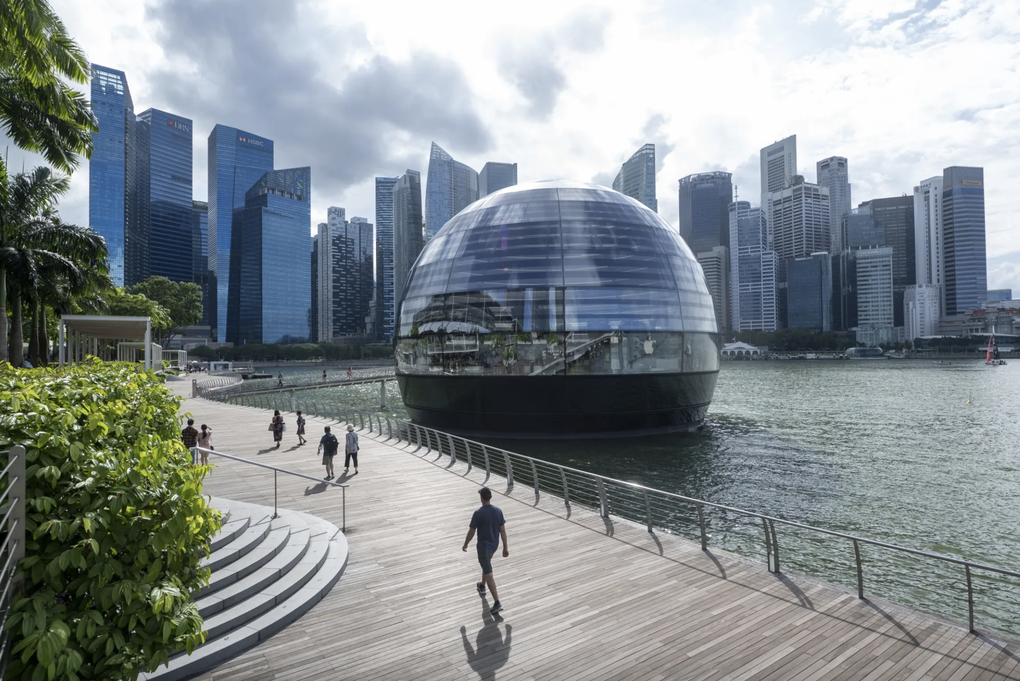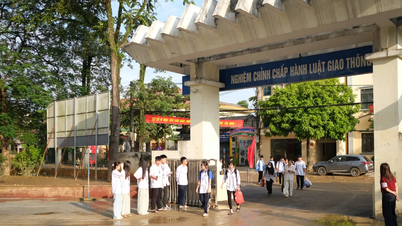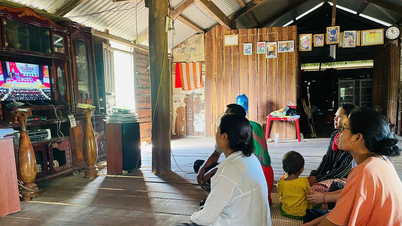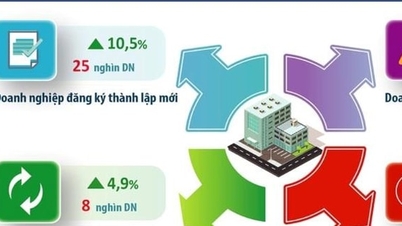Earn as much as spend.
“At the end of each month, when my salary comes in, I use it to pay off my credit card debt, pay my parents’ living expenses, pay insurance and invest,” Jovan Yeo, 31, who works at a digital banking services company, told CNBC. “After these payments, my salary is gone, and I have almost nothing left to save,” Yeo said, adding that other expenses include travel , restaurant meals and gym memberships.
Figures from recruitment services firm ADP show that the proportion of Singaporeans living "paycheck to paycheck" has increased from 53% in 2021 to 60% in 2024. This is higher than in other countries in the region such as China, South Korea, Japan and Indonesia, and higher than the Asia- Pacific average of 48%.
A survey by research and consulting firm Forrester Research found that in 2021, the percentage of Singaporeans who spent their entire monthly salary was 53%.
Additionally, young Singaporeans in their 20s are more likely to be willing to “spend more than they can afford” to keep up with their peers than other age groups.

Singapore is among the countries with the highest cost of living in the world (Photo: ST).
However, compared to 2023, the proportion of Singaporeans aged 20-50 who have started financial planning for retirement is now lower, according to a report by OCBC Bank in 2024.
Mr Yeo acknowledges the importance of saving, but says it is becoming increasingly difficult to do as the cost of living continues to rise. “Of course I can save if I don’t go out, but I want to live a life full of experiences,” he says.
Economist Brian Lee of research firm Maybank Research said that a number of macroeconomic factors are making saving in Singapore more difficult.
Although inflation has recently fallen to a four-year low, the island nation remains among the world's most expensive to live in, due to structural factors such as expensive housing and high import costs.
According to Numbeo's cost of living index, as of mid-2025, Singapore ranked fifth globally with a score of 85.3, the highest in the region and an increase of 11% year-on-year.
“During the period of high consumer price inflation after the pandemic, the cost of living increased faster than income,” Mr. Lee said, explaining that this meant that workers' purchasing power had been reduced every year since the pandemic.
“Singapore has limited land, space and natural resources. This has led to high property prices, high car prices, and a dependence on imported food. Due to the dependence on imports, inflation in Singapore is highly dependent on global inflation.
Notably, global inflation has been high over the past few years due to disruptions related to the strong increase in commodity demand, labor shortages and supply chain bottlenecks,” said Maybank economists.
Why do expenses exceed income?
Other experts told CNBC that the trend of declining savings in Singapore is not only related to rising living costs but also reflects deeper social and cultural changes, such as many people no longer feeling the need to save as much.
PhillipCapital wealth manager Joshua Lim says spending is increasingly about status. “Luxury is very popular here. Mercedes is one of the top-selling brands. People are aiming for a certain image, a certain lifestyle.”
“For those who spend 100% of what they earn, that is, those who don’t really want to save, they even spend what they haven’t earned,” Mr Lim said, referring to pre-purchase programs that are making spending easier.

Singaporeans feel no need to save much (Photo: Bloomberg).
Research firm IDC expects buy-now-pay-later payments in e-commerce transactions in the country to increase from 4% in 2023 to 6% in 2028.
Joyce Ang, 34, admits that she doesn’t feel the same pressure to save as her parents. “I feel secure spending because I don’t have a family yet, I still live with my parents, and I don’t have to worry about housing. I haven’t had any major events that require me to save right away,” she says.
According to her, the priorities of the younger generation have changed. “In my parents’ time, they saved for their children. But now not everyone wants to have children… so we don’t need to be so frugal,” she added.
Source: https://dantri.com.vn/kinh-doanh/chuyen-la-ve-the-he-khong-tien-tiet-kiem-o-singapore-20250817005515233.htm


![[Photo] Prime Minister Pham Minh Chinh chairs meeting to deploy overcoming consequences of storm No. 10](https://vphoto.vietnam.vn/thumb/1200x675/vietnam/resource/IMAGE/2025/10/3/544f420dcc844463898fcbef46247d16)


![[Photo] Students of Binh Minh Primary School enjoy the full moon festival, receiving the joys of childhood](https://vphoto.vietnam.vn/thumb/1200x675/vietnam/resource/IMAGE/2025/10/3/8cf8abef22fe4471be400a818912cb85)




































































































Comment (0)